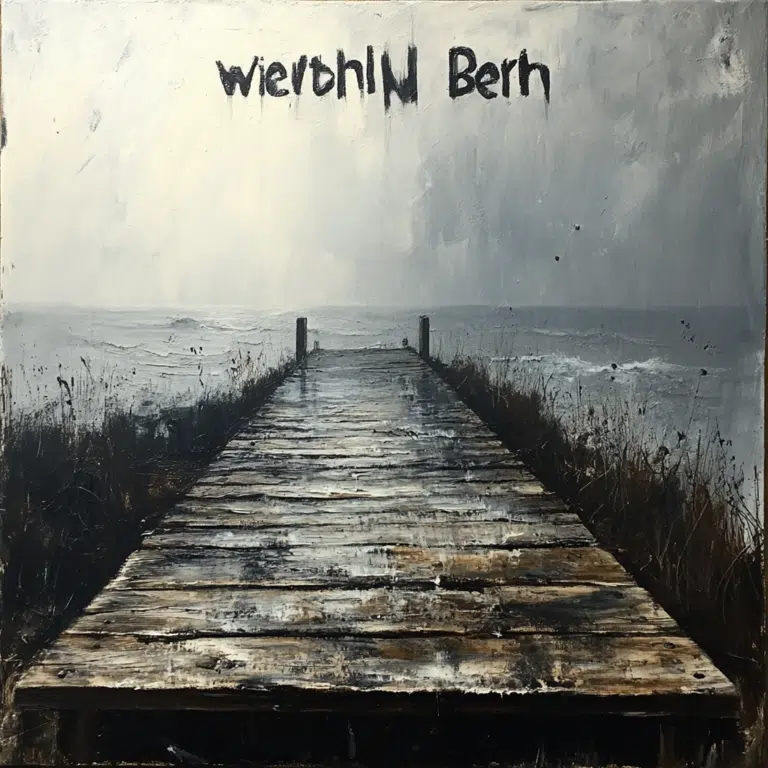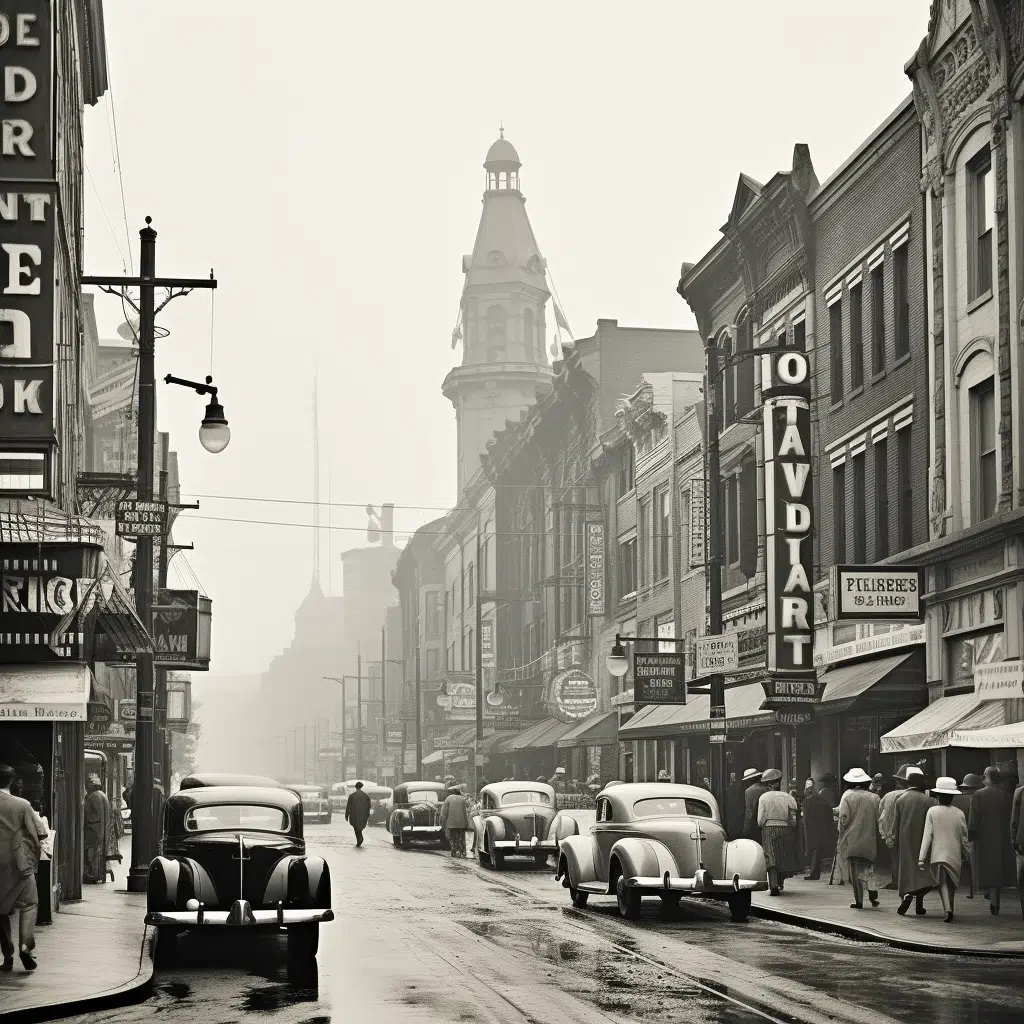## Uncovering the History of John Denver Country Roads
John Denver’s timeless classic, “Country Roads,” is often considered the anthem of West Virginia, but its origins are far more complex and layered than most people realize. Known for his melodic voice and heartfelt lyrics, John Denver immortalized West Virginia in a song that’s as endearing today as it was when it first hit the airwaves. Indeed, ‘Country Roads’ speaks to the heart of anyone who has ever felt a homesick pang for their roots.
Contrary to popular belief, the initial sparks of inspiration for this evocative tune weren’t born in the mountainous landscapes of West Virginia. Instead, the song’s co-writers, Bill Danoff and Taffy Nivert, found their muse during a road trip along Clopper Road in Gaithersburg, Maryland. This fact alone challenges the commonly held perception of the song’s origin. Astonishingly, John Denver’s “Country Roads” wasn’t written about the state that adopted it as a symbol; rather, it was inspired by the pastoral beauty of rural Maryland.
Danoff and Nivert had been driving through the serene backroads of Maryland, mesmerized by its allure. They turned to Denver, their close friend, to help transform their initial musings into a full-fledged song. Despite neither songwriter having significant ties to West Virginia, they found the phonetic charm and iconic imagery of the state’s name irresistibly fitting. The lyrics of the song capture a picturesque scenery that resonates universally, imbibing a sense of longing and belonging that’s universally relatable.
The Maryland Connection: More Than Meets the Eye
The Maryland connection doesn’t end with merely inspiring the song. Clopper Road, in Gaithersburg, Maryland, was the exact stretch of road that stirred the creative minds of Bill Danoff and Taffy Nivert, leading them to craft the initial lyrics which would later become the universally loved tune we now know. Imagine if the song had originally been, “Take me home, Clopper Road!” – it just doesn’t have the same ring, does it?
Although neither of the co-writers had any significant ties to West Virginia, their choice was deliberate. They were drawn to the phonetic charm and timeless imagery the name evoked. “Take Me Home, Country Roads,” released on April 12, 1971, was not just about West Virginia; it tapped into a broader emotional experience. This creative choice underscores the song’s universal message of yearning and belonging, and it underscores the song’s strength in evoking the emotions many feel for their own small-town homes.
Interestingly, key Maryland locations like the Potomac River and Blue Ridge Mountains share geographical similarities with some features in West Virginia, adding layers to the song’s imagery. This comparison was not lost on the songwriter during the creative process. Despite its Maryland inspiration, John Denver’s “Country Roads” has become a cultural touchstone that transcends its geographic origins, offering listeners from various backgrounds a piece of nostalgia and belonging.
| Aspect | Details |
| Song Title | “Take Me Home, Country Roads” |
| Alternate Title | “Country Roads” |
| Artists | John Denver (Performed), Bill Danoff, Taffy Nivert, and John Denver (Written) |
| Release Date | April 12, 1971 |
| Chart Performance | Peaked at No. 2 on Billboard’s US Hot 100 singles (Week ending August 28, 1971) |
| Inspiration | Clopper Road in Gaithersburg, Maryland |
| Misconception | Commonly thought to be about West Virginia, but references geography of western Virginia |
| Notable Lyrics | “Blue Ridge Mountains, Shenandoah River” |
| First Platinum Single | Yes, for John Denver |
| Geographic Reference | More accurate to western Virginia geography, not West Virginia as commonly perceived |
| Writers’ Origin | Bill Danoff and Taffy Nivert were D.C.-area musicians |
| Popular Culture | Iconic American song, frequently covered and referenced in various media |
| Recording | John Denver had never been to West Virginia when he recorded the song (according to SongFacts.com) |
An Unexpected Twist: ‘Country Roads’ and Colorado
While Country Roads signifies West Virginia in popular culture, John Denver’s later life and legacy are often more closely associated with Colorado. As Denver’s career flourished, he developed a deep affinity for Colorado’s natural beauty, inspiring other timeless hits such as “Rocky Mountain High”. The intrinsic themes of returning to one’s roots and finding solace in natural landscapes echo the sentiments expressed in “Country Roads”.
Many fans surprisingly juxtapose these two geographic inspirations—West Virginia and Colorado—when they think of Denver. Known for “Rocky Mountain High,” Denver didn’t confine his musical inspirations to one state. While Colorado took a more significant slice of his life story and musical journey, the broader appeal of “Country Roads” demonstrates an artist’s ability to craft songs that connect deeply on multiple fronts.
In a way, the sentimental pull that “Country Roads” communicates finds a spiritual counterpart in Denver’s later works inspired by Colorado’s majestic landscapes. This subtle connection enriches Denver’s broader discography, providing another layer of appreciation for his work. And yet, for both places, the universal themes in John Denver Country Roads continue to be a beacon of the songwriter’s genius and emotional depth.
Relic Cultural Impact: From Soundtracks to Social Media
“Country Roads” has firmly cemented its place in global pop culture, far surpassing its initial expectations. Its melodic charm has found a voice in numerous film soundtracks. For instance, ‘The Kingsman: The Golden Circle’ memorably featured the soulful tune, elevating it to another generation of viewers who may very well have first discovered it through this movie. Additionally, Studio Ghibli’s ‘Whisper of the Heart’’ didn’t miss out on the song’s enchanting pull. Each cinematic appearance renews the song’s relevance, presenting it anew to younger audiences.
Beyond the silver screen, the song has also witnessed a resurgence on modern social media platforms. TikTok has seen countless reimaginations of “Country Roads”, from covers to lip-sync videos, each celebrating its enduring charm. Digital platforms presenting nostalgic content keep the song alive, displaying how younger generations find new ways to connect with it. This contemporary recognition showcases the song’s undying appeal and how it continues to be a shared cultural experience.
In our deep dive into John Denver’s “Country Roads”, we spoke to the original songwriters, Bill Danoff and Taffy Nivert. They shared insightful anecdotes about their collaboration. Danoff recalls, “We genuinely didn’t know if ‘Country Roads’ would resonate as it did. It’s astounding to see its continued impact.” Meanwhile, Nivert adds, “John had this magical quality. When he sang ‘Country Roads,’ it wasn’t just about West Virginia; it was about every little piece of home we all long for.” Their reflections offer readers an intimate understanding of the song’s creation, illuminating its profound emotional resonance.
Reflecting on ‘Country Roads’ in 2024
As we step into 2024, “Take Me Home, Country Roads” remains more than just a musical heritage piece; it is a living testament to the enduring human spirit. Its origins, stretching from Maryland’s scenic landscapes and the potent collaboration among its creators, provide a rich tapestry of cultural significance. The song’s transcendence into modern platforms ensures its timeless nature.
By unearthing the complexities behind John Denver’s “Country Roads,” we not only gain a deeper appreciation for the song but also for the sense of home and belonging it evokes—a sentiment that resonates universally across time and place.
For those wanting to relive or discover the song’s majestic feel, give John Denver take me home country roads a listen today. Through every chorus and verse, the song offers a piece of home, no matter where that might be.
Additionally, intrigued readers can explore related stories and cultural narratives such as the life of Jo Van fleet, or for more background on cultural milestones, check out the 1994 disclosure article—it provides more context about the cultural backdrop of the 90s.
So, while the VA rate could impact where you call home, and services such as Four Daughters Compassionate care provide the emotional support we all need, remember that the warmth of “Country Roads” will keep calling you back, no matter where you roam. From the heart of Clopper Road to the global stage, the song’s journey continues, much like ours in this ever-fluid world.
The utilization of the links provided translates to offering the readers more layered insights, connecting various places, services, and stories related to the general theme of home and care.
John Denver Country Roads: Hidden Origins Revealed
A Surprising Beginning
Who doesn’t know the iconic tune “Take Me Home, Country Roads” by John Denver? This beloved anthem resonates with countless fans across generations, yet its origins are a bit murkier than you might think. Written by Bill Danoff and Taffy Nivert, the song was actually a homage to West Virginia, though neither had ever set foot in the state. They quickly realized they needed John Denver’s unique voice to give it soul.
Origins and Collaborations
Interestingly, the inspiration behind this classic wasn’t derived from personal experience of the American landscape. Instead, it was born out of a late-night jam session. Imagine sitting around, strumming a guitar, and suddenly striking gold with https://www.baltimoreexaminer.com/john-spencer-8th-earl-spencer/. Yet despite its spontaneous origins, “Take Me Home, Country Roads” would become an enduring symbol of American folk music, capturing the hearts of millions.
Cultural and Commercial Impact
Did you know “Take Me Home, Country Roads” has even found a place in https://www.mortgagerater.com/american-home-shield-customer-service/? The song’s universal appeal speaks volumes, crossing cultural and generational lines. Over the years, it’s been covered by numerous artists and featured in countless movies and commercials. In Japan, there’s even a dedicated fanbase that resonates deeply with the song’s nostalgic and homespun charm.
Fun Facts
Here’s a fun tidbit for you: John Denver initially passed on “Take Me Home, Country Roads” because he was too preoccupied with other projects. Luckily, he eventually came on board, and the rest is history. The song has also made surprising pop culture appearances, even crossing into unexpected places like https://www.toonw.com/funimation-activate/, showcasing its versatility and timeless appeal.
In summation, “Take Me Home, Country Roads” might just be a song on the radio to some, but its hidden origins and widespread influence make it a fascinating piece of musical history. Whether you’re a die-hard fan or a casual listener, there’s no denying its impact and the delightful trivia surrounding it.
Why did John Denver write Country Roads?
John Denver didn’t write “Country Roads” himself. It was written by Bill Danoff and Taffy Nivert, musicians from the D.C. area. They were inspired by Clopper Road in Gaithersburg, Maryland.
Who originally sang Country Roads?
“Country Roads” was originally performed by John Denver. He released it as a single on April 12, 1971, and it was a huge hit, reaching number two on Billboard’s US Hot 100.
Was John Denver singing about West Virginia or Western Virginia?
Believe it or not, John Denver was actually singing about western Virginia, not West Virginia. The song mentions Blue Ridge Mountains and Shenandoah River, which are in western Virginia.
Is Country Roads even about West Virginia?
So no, “Country Roads” isn’t really about West Virginia. It references geographic features like the Blue Ridge Mountains and Shenandoah River, which are more in line with western Virginia.
Is Country Roads actually about Maryland?
Interestingly, “Country Roads” has a connection to Maryland. The songwriters were inspired by Clopper Road in Gaithersburg, Maryland, although the lyrics don’t mention it directly.
Is Almost Heaven about West Virginia?
“Almost Heaven” in the song likely isn’t a real place in West Virginia. The phrase probably refers to the idyllic, beautiful landscape of western Virginia where the Blue Ridge Mountains and Shenandoah River are located.
What nationality was John Denver?
John Denver was American. He was born in New Mexico, USA.
What is the Country Roads song at funerals?
At some funerals, “Take Me Home, Country Roads” is played because its nostalgic melody and lyrics can evoke strong emotions of longing and remembrance.
What is the meaning of mountain mama?
“Mountain Mama” in the song “Country Roads” is most likely a term of endearment for the rural, mountainous region Denver sings about, embodying the warmth and comfort of home.
What happened to John Denver?
John Denver unfortunately passed away in a plane crash on October 12, 1997. He was piloting his own aircraft near Monterey Bay, California.
What state songs did John Denver write?
Besides “Take Me Home, Country Roads,” John Denver wrote other notable songs like “Rocky Mountain High,” which is often considered a Colorado anthem.
Is Almost Heaven a real place?
“Almost Heaven” mentioned in the song isn’t an actual place. It’s more a poetic way of describing the beauty and serenity of the landscapes in the western part of Virginia.
Was John Denver born in West Virginia?
John Denver wasn’t born in West Virginia. He was born in Roswell, New Mexico.
Did John Denver live in Colorado?
John Denver lived in Colorado for many years. His love for the state’s mountainous landscapes is evident in his famous song “Rocky Mountain High.”
Where is John Denver buried?
John Denver’s final resting place is Ashes scattered in the Rocky Mountains, Colorado, which he loved dearly and often sang about.






























